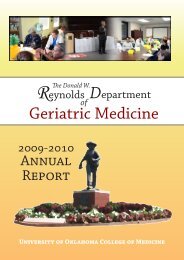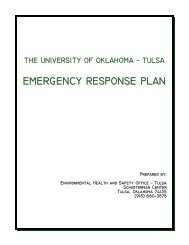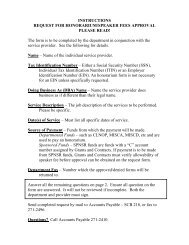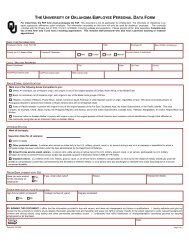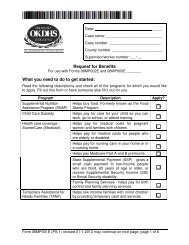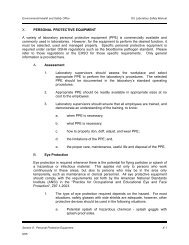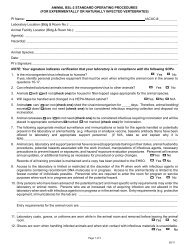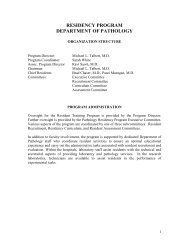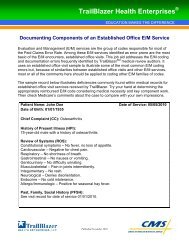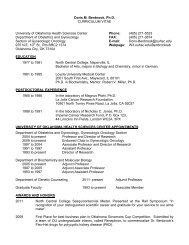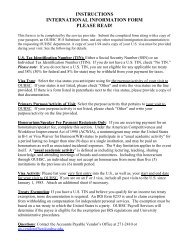The Unofficial Guide to First Year - University of Oklahoma Health ...
The Unofficial Guide to First Year - University of Oklahoma Health ...
The Unofficial Guide to First Year - University of Oklahoma Health ...
Create successful ePaper yourself
Turn your PDF publications into a flip-book with our unique Google optimized e-Paper software.
UNOFFICIAL GUIDE<br />
ask Dr. Blair (and don’t listen <strong>to</strong> the people that call you a<br />
gunner!).<br />
• DO THE STUDENT EXAM. <strong>The</strong> student exams are just<br />
another resource that puts the material in multiple-choice format.<br />
• DO THE Q-BANK QUESTIONS. Do them until you get them<br />
all correct twice in a row. <strong>The</strong>y may not be repeated on the exam,<br />
but what better way <strong>to</strong> boost your score than with gimmies.<br />
Beware: sometimes, the cited answers are incorrect so if you are<br />
unsure about the accuracy <strong>of</strong> a question’s answer, ask someone<br />
else. Also, they may cover material not discussed in class so just<br />
ignore the questions that are over something you’ve never heard<br />
before.<br />
• STUDY THE SYLLABUS AND NOTEGROUPS. Know the<br />
bolded items in the syllabus like the back <strong>of</strong> your hand. <strong>The</strong><br />
syllabus is well written for the most part and should be your<br />
primary study source.<br />
• RE-LISTEN TO LECTURES ONLINE. Sometimes, listening <strong>to</strong><br />
something again shortly after you’ve heard it for the first time will<br />
help <strong>to</strong> solidify it in your brain. If you find yourself <strong>to</strong> be a<br />
homebody, at least listen <strong>to</strong> the lectures <strong>to</strong> help identify concepts<br />
that may have been stressed.<br />
• KEEP UP. I know this is easier said than done, but try <strong>to</strong><br />
maintain a schedule where you can dedicate a time block solely <strong>to</strong><br />
Neuro. This doesn’t have <strong>to</strong> be every day but try <strong>to</strong> keep on <strong>to</strong>p<br />
<strong>of</strong> the material on a weekly basis. How this will work for you<br />
differs with every person: making note cards, reading and rereading<br />
the syllabus, listening <strong>to</strong> lectures repeatedly, writing out<br />
notes…. just find what works for you and try <strong>to</strong> stick <strong>to</strong> it. <strong>The</strong>n<br />
when test block rolls around; make a couple final swipes through<br />
all <strong>of</strong> the material and GET SOME REST!<br />
• STUDY REVIEW SHEETS. Someone in your class will probably<br />
make a review sheet (if not, someone in prior classes have made them<br />
and if you ask the second years kindly <strong>to</strong> post them on the discussion<br />
board, I’m sure they will). When you think you know everything, read<br />
the review a few times <strong>to</strong> make sure you’re right.<br />
RESOURCES:<br />
HIPPOCRATES:<br />
Hippocrates is golden for this course. You will find links <strong>to</strong> numerous resources<br />
online that we all advise you <strong>to</strong> take advantage. In addition, the interactive lab<br />
guide contains many <strong>of</strong> the EXACT IMAGES that Dr. Blair will use when<br />
making up the lecture hall portion <strong>of</strong> the practical. This interactive guide is<br />
82




